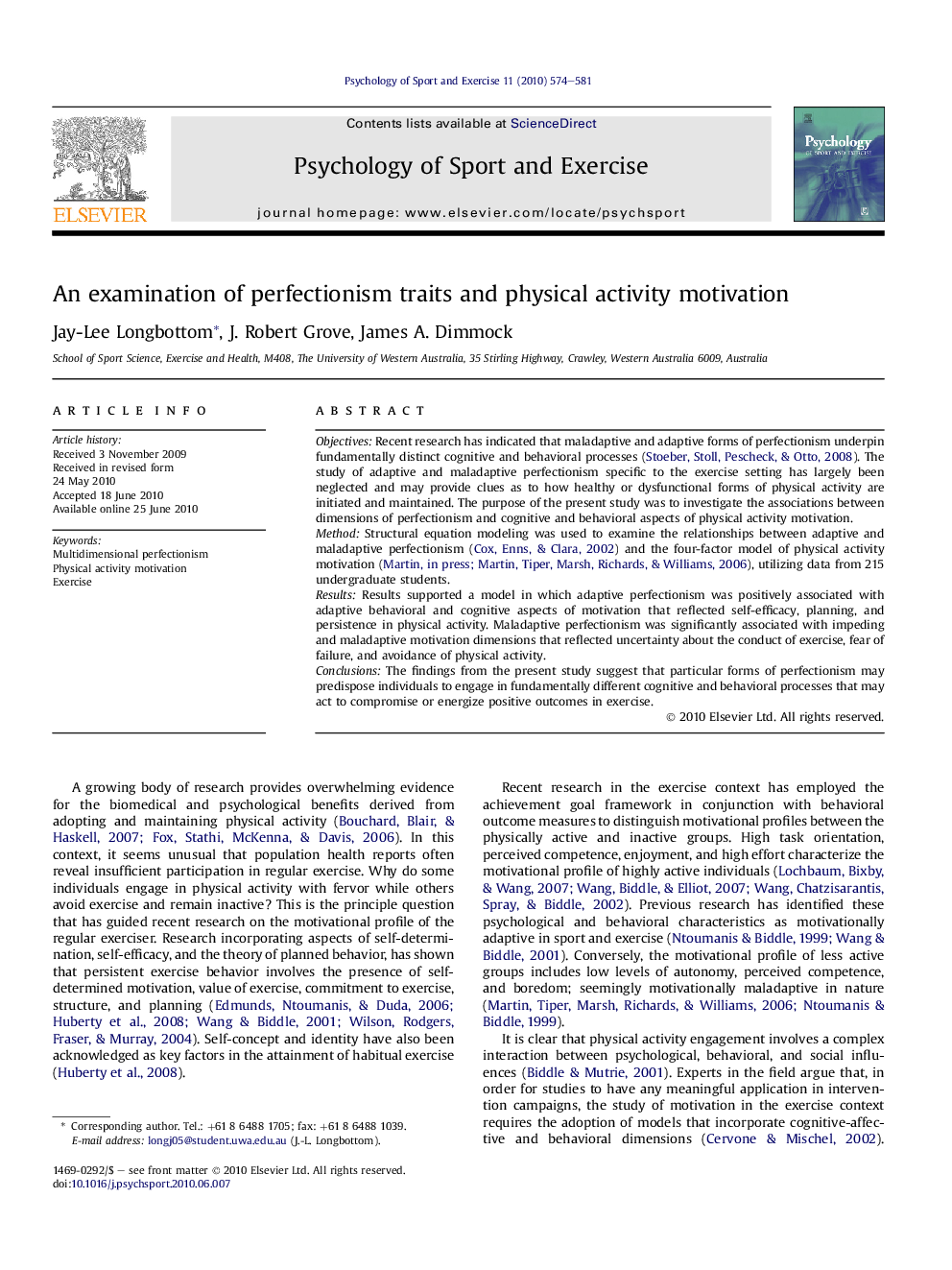| Article ID | Journal | Published Year | Pages | File Type |
|---|---|---|---|---|
| 894556 | Psychology of Sport and Exercise | 2010 | 8 Pages |
ObjectivesRecent research has indicated that maladaptive and adaptive forms of perfectionism underpin fundamentally distinct cognitive and behavioral processes (Stoeber, Stoll, Pescheck, & Otto, 2008). The study of adaptive and maladaptive perfectionism specific to the exercise setting has largely been neglected and may provide clues as to how healthy or dysfunctional forms of physical activity are initiated and maintained. The purpose of the present study was to investigate the associations between dimensions of perfectionism and cognitive and behavioral aspects of physical activity motivation.MethodStructural equation modeling was used to examine the relationships between adaptive and maladaptive perfectionism (Cox, Enns, & Clara, 2002) and the four-factor model of physical activity motivation (Martin, in press and Martin et al., 2006), utilizing data from 215 undergraduate students.ResultsResults supported a model in which adaptive perfectionism was positively associated with adaptive behavioral and cognitive aspects of motivation that reflected self-efficacy, planning, and persistence in physical activity. Maladaptive perfectionism was significantly associated with impeding and maladaptive motivation dimensions that reflected uncertainty about the conduct of exercise, fear of failure, and avoidance of physical activity.ConclusionsThe findings from the present study suggest that particular forms of perfectionism may predispose individuals to engage in fundamentally different cognitive and behavioral processes that may act to compromise or energize positive outcomes in exercise.
